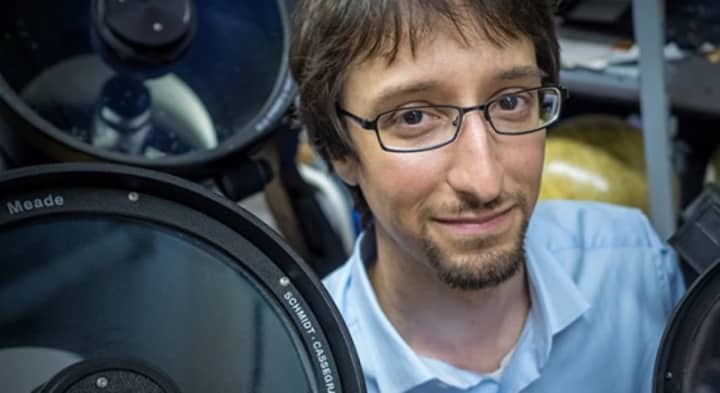Marc Favata, a Montclair State University professor, was awarded a $400,000 CAREER grant from National Science Foundation to explore how gravitational waves offer a new way of looking at the world.
CAREER -- the Faculty Early Career Development Program -- offers the National Science Foundation's most prestigious awards in support of early-career faculty who have the potential to serve as academic role models in research and education and to lead advances in the mission of their department or organization.
"Now that we can detect gravitational waves, we can understand the universe with a whole new set of tools. Every time we use a new technique, we discover exciting things," he said.
Favata was part of the LIGO team in 2015 that first detected gravitational waves from two colliding black holes.
LIGO is the Laser Interferometer Gravitational-wave Observatory.
The discovery of gravitational waves was one of the most significant findings in physics in over 50 years, he said.
Albert Einstein predicted gravitational waves existed more than a century ago.
"We're always trying to test the validity of Einstein's theory in new situations. His remarkable theory has passed every observational test so far. "
Astronomy got Favata's attention when he was a kid in Elmwood Park and it further progressed while he was a student at Bergen Catholic in Oradell.
There, he came across a book about black holes by California Institute of Technology Professor Kip Thorne and that sealed his fate.
Favata went to Caltech and took classes with Thorne, who helped launch LIGO and was instrumental in the 2015 discovery of the first gravitational waves.
Favata's grant will go toward further research as well as education and public outreach.
He will focus on improving the models that LIGO and other gravitational-wave detectors will use to analyze their signals.
A website to explore the analogy between gravitational waves and sound will also be expanded as part of the education and outreach component.
A recorded gravitational-wave signal can be converted to a sound so it can be heard, in much the same was as an x-ray image is converted to an optical photograph so that it is visible to the eye.
"The detection of gravitational wave signals now allows us to listen to the universe," he said.
Black holes produce the strongest gravitational waves, but Favata said there are more phenomena LIGO has yet to detect that also produces them as well.
Like neutron stars.
"How matter behaves inside a neutron star is something we want to know," he said.
Click here to listen to gravitational waves.
Click here to learn more about gravitational waves.
Click here to follow Daily Voice North Passaic and receive free news updates.


